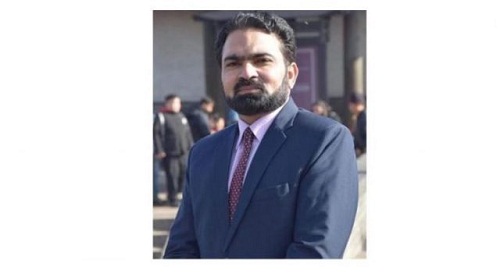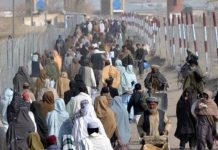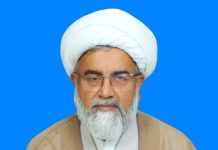Abdul Rashid Shakir
True to a wise Chinese saying, ‘A close neighbor means more than a distant relative’, US has abandoned the war-torn Afghanistan this time too.
Dusting off annals of US military intervention in Afghanistan reveals that it was in 1989 when, backed by US military support, Afghanistan realized the American dream of being world’s sole super power by disintegrating Union of Soviet Socialist Republics (USSR) into Russian Federation and independent Central Asian Republics (CARs). After achieving its strategic foreign policy objective of defeating Soviets in Afghanistan, US abandoned Afghanistan instead of helping it to rebuild, rehabilitate and stabilize its economy.
The domino effect kicked in when US also abandoned its major ally in Afghan jihad (1979-1989), Pakistan, by slapping Pressler Sanctions in 1990. The lethal blowback of Pakistan siding with the US in Afghan Jihad was felt by Pakistani society in the form of gun culture and sectarian violence in 1990s, and influx of around 3 Million Afghan refugees straining the already-fledgling Pakistan’s economy at that point in time. These fault lines are further accentuated when we witnessed the rise of Tehreek-e-Nifaaz-e-Shariat-e-Mohammadi (TNSM) in early 2000s and Tahrik-I-Taliban Pakistan (TTP) in the late 2000s.
Then came the fateful event of 9/11 in the US in 2001. US and its NATO allies invaded Afghanistan in October 2001 to topple down Taliban Regime to destroy safe havens of Al-Qaeda, an organization of world-acclaimed mujahideens against Soviets in Afghanistan a couple of decades ago.
Pakistan was again asked to ‘be with us or against us’. Through convincing statements like, ‘We won’t abandon Pakistan this time’, and some brazen threats like, ‘We would bomb you to stone age’, US managed to stitch Pakistan as its major non-NATO ally in this two-decade long military campaign against terrorism in Afghanistan.
Pakistan again felt tremendous shocks and fatal blowback. Fangs of terrorism and suicide bombings ripped the peace and stability of our social order apart.
Economy crippled, business and investment came to a grinding halt, and Pakistan’s law and order system was rattled to the core. Terrorist and subversive activities sponsored by Indian consulates across Pak-Afghan border spoiled the peace of our society. When factored in all these developments in the overall business ecosystem, capital flight and brain drain appeared to be quite logical corollaries.
Since 9/11 in 2001 until Doha Agreement in February 2020 when US announced withdrawal of its forces from Afghanistan by 31 August 2021, Pakistan has paid a huge price in terms of man, money and material.
More than 70,000 Pakistanis including civilians and security personnels have lost their precious lives. Thousands have either received injuries or have been rendered crippled. More than 2 Million were internally displaced in Khyber Pakhtunkhwa’s newly-merged tribal districts due to Operation Black Thunderstorm in 2009, and many lost their abodes altogether.
Pakistan has also incurred a massive economic cost to the tune of more than 150 Billion USD compared to ‘peanuts’ it received in economic, development and military support under Coalition Support Fund (CSF) and Kerry Lugar Bill since it joined US war in Afghanistan as a frontline state in 2001.
But quite unfortunately, instead of acknowledging Pakistan’s so much sacrifices and recognizing plethora of problems it faced, just because it supported US and its allies in their war in Afghanistan, it is being made a scapegoat for what the greatest military might of US and its NATO allies could not achieve in Afghanistan after spending trillions of dollars over the course of 20 years. Massive carpet bombings, lot of drone strikes, countless counter-insurgency and Intelligence Based Operations (IBOs) could not materialize their declared objective of subduing Taliban and lending peace and stability to Afghanistan by eliminating safe havens of terrorists and insurgents. Now that the fully-trained and well-equipped Afghan National Army (ANA) has melted and Talibans are back in Kabul, it is high time that the international community should support efforts for the formation of an inclusive and broad-based government to ensure peace and stability in Afghanistan. Pakistan is doing all it can to avert civil war like situation in Afghanistan by trying to take on board all possible stakeholders in the country. Pakistan is also engaged with all regional and international countries to reach at a mutually-acceptable solution of the whole crisis. Pakistan is in active liaison with China, Russia, Turkey, Iran, UK and EU for a peaceful settlement of Afghan crisis by bringing all parties on the table to form an inclusive government.
US should also play a more responsible role in acknowledging the ground realities and supporting the formation of an inclusive government to ensure peace, stability, rehabilitation, and development in Afghanistan.
The writer can be reached at [email protected]

















